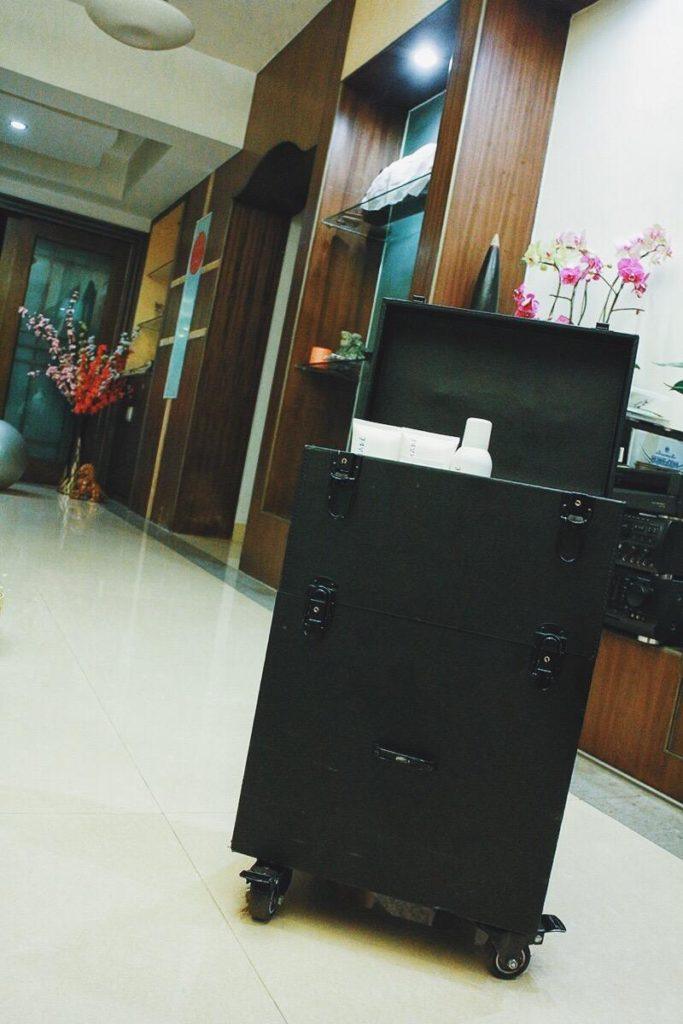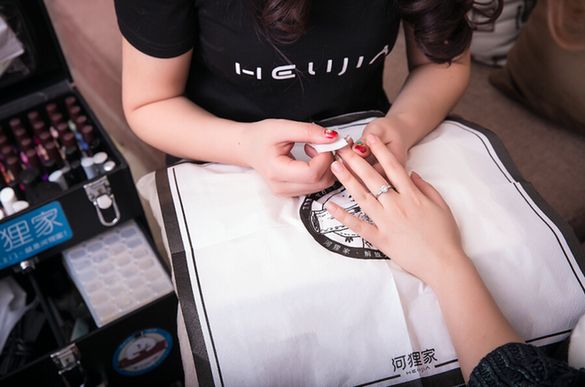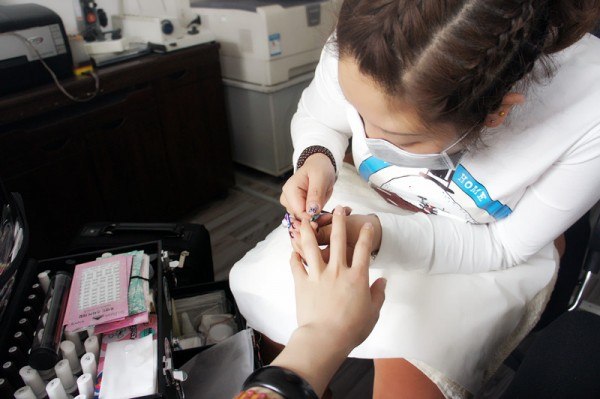The Beaver that Brings On-Demand Beauty Services to Your Home

Can “personal business” such as manicures and haircuts be “Uberized?”
Helijia (hereon “Beaver”) is a  Beijing-based startup that provides on-demand in-home beauty services to Chinese consumers. The Beaver mobile app connects individual consumers with tens of thousands of service providers, enabling the end-to-end process of service exploration, booking, communication, payment, and feedback. The name “Helijia” in Chinese resembles “a good price,” while its literal translation “beaver’s home” hints at the startup’s mission to provide great services by hand, the same way beavers construct their homes.
Beijing-based startup that provides on-demand in-home beauty services to Chinese consumers. The Beaver mobile app connects individual consumers with tens of thousands of service providers, enabling the end-to-end process of service exploration, booking, communication, payment, and feedback. The name “Helijia” in Chinese resembles “a good price,” while its literal translation “beaver’s home” hints at the startup’s mission to provide great services by hand, the same way beavers construct their homes.
Beaver started out as a platform for in-home manicure services. The scope over time has expanded to include in-home pedicures, eyelash extensions, facials, massages, haircuts, and more. The business signs up individual service providers directly, such that they – oftentimes women in their 20s and 30s without higher education – can circumvent having to work at a brick-and-mortar location, on a rigid schedule. Instead, these women can work as many or as few hours as they want, and tailor their schedules to fit personal and family needs.
Beaver charges its service providers an approximately 20% (varies by service category) commission from services booked on its platform, and provides them with regular training, certifications, and wholesale access to branded products. The other main revenue stream for Beaver is product sales – nail polish, tools, skincare, and aromatherapy oil – to service providers and end consumers.

Rather than traditional gig workers, service providers on Beaver are – in a way – entrepreneurs with flexible work schedules. They can build and manage their own individual online stores, accumulate detailed customer reviews, and grow from 1-star to 5-star certifications through completing more jobs and training while maintaining high ratings. A higher level certification not only prioritizes the service provider in search results, but also allows her to charge for her services at higher rates. The success of each individual business also relies on the provider’s ability to develop long term client relationships – customers sometimes prepay for future services with the same provider in amounts ranging in US$1,000 – $10,000, in exchange for committed discounts of up to 50%.
Both the customers and service providers seem to acknowledge and appreciate the value of Beaver. When I lived in China between 2016 and 2018, I really enjoyed the convenience and luxury of having nail or spa services at my home or hotel rooms, at a time that worked for me. I also got to know many of my service providers. Most of them seemed happy with the platform, particularly the flexibility it afforded them, and the removal of the profiteering physical store owners from the picture. Being an entrepreneur, however, is not all fun and glory. Many of these service providers have to carry heavy equipment around the city, and spend up to two hours commuting from one customer to the next. And thanks to my work schedule, many of my providers would start the service at 9pm and sometimes finish up past midnight. It was humbling, heartening, and inspiring for me to get to know some providers, in their early 20s with no college degree, making nearly the same amount of money as I did, purely with their hard work and expertise.
It may then come as a mild surprise, that Beaver has been running into many challenges in the last few years. Beaver differentiates from other offline-to-offline platforms (such as Uber) in an important way: the nature of the services provided is highly non-standard, personal, and subjective. This makes the platform both valuable to consumers (I miss it particularly when I’m back in the US, where an equivalent cannot be found), and vulnerable to a host of problems beyond the ones shared by most platforms, such as disintermediation and customer/provider safety.
For example, while customers like myself enjoy exploring  different services on the platform, occasionally the service provider surprises us in bad ways. A botched manicure, a disastrous haircut, or a scar on the face from bad facial techniques… These are events that could drive customers away for good.
different services on the platform, occasionally the service provider surprises us in bad ways. A botched manicure, a disastrous haircut, or a scar on the face from bad facial techniques… These are events that could drive customers away for good.
On the other hand, the services are labor intensive, challenging the platform to efficiently scale up its supply. Beaver’s management has commented that managing a large network of service providers around the country is extremely complex. Despite many measures designed to standardize and improve quality of service, Beaver inevitably has to take some responsibility – financial, reputational, and even legal – for the poor performances or unfortunate accidents on behalf of some providers.
As much as I appreciate the unique value provided by Beaver, it is not going to continue growing at a venture business pace purely off of urban professionals like me, who work long hours and have a special distaste for commuting. Some customers may have time and prefer to not pay a premium for the in-home convenience. Some may prefer the in-store experience, especially on the higher end of the service spectrum. The urban sanctuary vibe at premium spas is not easily recreated at home with a suitcase-ful of products and tools.
Indeed, Beaver has been focusing heavily on the higher ticket size services, as this makes the most economic sense for service providers (remember they often have to block off 2 hours for transportation between jobs), and thus the platform itself. This strategy increasingly drives Beaver into an awkward corner. The battle in the high end space is intense, with both formidable premium physical competitors and extremely picky customers.
As a consumer, I hope Beaver, along with its tens of thousands of young women entrepreneurs, will continue to survive and thrive. But as a heartless VC investor, I would probably say: No, thank you. But call me again when you make manicure robots.





hahaha, I like your final comments.
As a user, I enjoyed the convenience.
But as an investor, I am not optimistic about it significant and huge growth. I would like to forecast Beaver run as a small and nice business, especially with the same founder who is also selling facial oil. It is a good combination as a business for good cash return.
Very much agreed! I also think the viability of this business comes partially from the fact that the founder conveniently had an upstream business!
Thanks for sharing Jack! I agree that the business model is challenging. An idea for diversification would be to explore also the B2B channel, connecting service providers with small beauty shops and salons; providing free-lancer workers to complement their workforce in some peak times. I owned a small urban spa and I know how hard is to balance the supply of professionals with the seasoned demand, and finding good professionals is always hard. Services providers would probably make less money but they could have a more stable income ant that could be another revenue stream for Beaver, at least until Robots are in the market ; ).
I agree that this service sounds great. I found your point about the buffer time added to appointments interesting. I wonder if this barrier to scaling and improving the economics will be reduced at scale if a given provider can book appointments at locations close to each other.
Agreed! There is much the platform can still do to help improve efficiencies, e.g., preventing appointments from running over, limiting the bookable map area based on previous appointment, etc.
Very interesting article! I have used a similar service in Lebanon and I really enjoyed the convenience of doing a manicure at your own home. I do see two major risks however to their business model. First, they are extremely exposed to disintermediation risk. Once you get used to a service provider, what prevents you as a customer to call them directly especially if you can save 20%? Another risk I see is the availability of supply i.e. service providers (as you have also mentioned) as they scale. Not sure how attractive this gig is for providers since they have to pay for transportation and split the revenues with Beaver. May be net net it’s easier for them to just work at a traditional B&M spa and maybe one day own their own.
Interestingly, I do believe most providers prefer/dream to have their own brick-and-mortar store one day! Even though some of these Beaver providers can/do make a lot of money and afford to take taxis between jobs, there may be a different drive in all of us other than money. Most if not all of them still want to manage a staff and a store. Blue-collar vs white-collar I imagine!
Totally agree re: huge disintermediation risk! For the most part these are repeat, high-value services that are happening within local clusters – the same risks apply as they did to Handy (example from RC TEM) and countless other home cleaning / beauty service / pet care / childcare / etc. But these platforms keep getting funded, even after we see them failing time and again! I’d love to hear if anyone has theories as to why that is, and if they see any way for a platform like Beaver to solve the disintermediation problem.
Thanks for an interesting read! I’ve never heard of a service like this but it reminded me of two potential opportunities. First, I wonder if there is a way for them to partner with corporations. For example, at my old bank, there were people who came into do shoe shining maybe 1-2x/week for the employees. Perhaps there is an opportunity to partner with those corporations and would reduce the travel and transportation time. Second, this reminds me a lot of the wedding industry or even professional photoshoots where many artists lug their make-up, hair supplies, etc to their clients. I’m curious what the TAM is for that in Beijing and if that could be another opportunity for Beaver to explore.
Really interesting read! I wonder, do you think it’s necessary to have beauty=only platforms like Beaver? Could the answer be an all encompassing platform for in home services? Think TaskRabbit + Telemedicine + Guitar lessons? Would a single marketplace be more efficient? Or would consumers distrust a brand that doesn’t focus?